
Dining while abroad can feel as though you are tiptoeing around a minefield of unfamiliar rules. Table manners are the ultimate way to show respect (or some accidental disrespect) to your gracious host.
We've already shown you how to drink while traveling to foreign countries, so now it's time to learn how to eat. Here are some of the very specific dining do's and don't's from around the world.
Slurp your food.
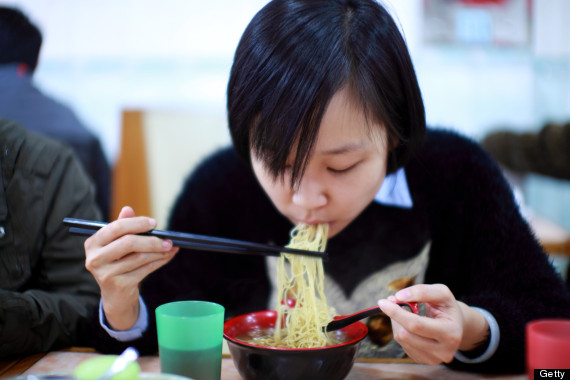
In Japan, most commonly when eating noodles and soups, slurping shows your appreciation of the food to the chef. The louder the better! You may also drink directly from the soup bowl -- spoons are uncommon. Furthermore, never cross your chopsticks, lick your chopsticks, or stick your chopsticks vertically into a bowl of rice. It's considered very rude in Japan and many other Asian countries, including China.
Eat only with your right hand.
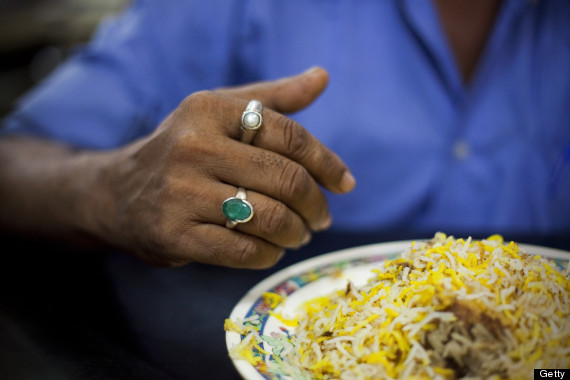
Sorry lefties -- in India, the Middle East, and some parts of Africa, it is considered unclean to eat with your left hand.
Don't offer to split the bill.
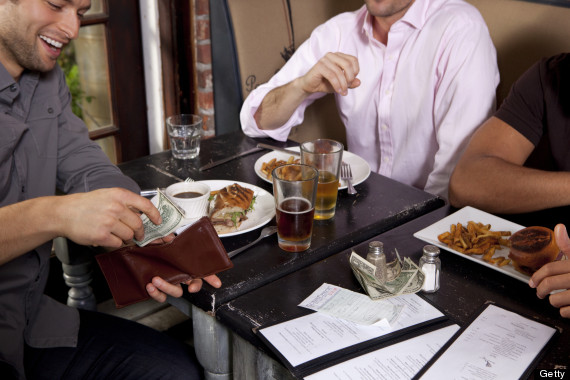
In France, splitting the bill is considered the height of unsophistication. Offer to pay the bill in its entirety or someone else will.
Bread is a utensil.
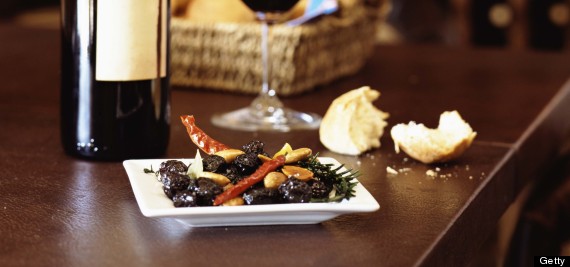
In France, you are supposed to use two hands to eat -- either fork and knife or fork and bread. Bread isn't meant to be an appetizer -- instead it serves to assist the food to the fork. When you eat the bread, tear off a piece of it to eat instead of biting directly into the bread. When not in use, the bread belongs on the table or tablecloth instead of the plate.
Eat with your hands.
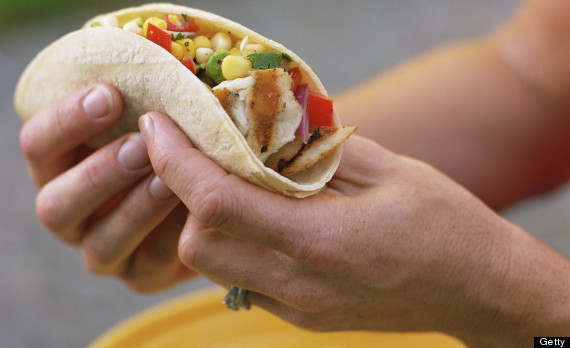
In Mexico, it is considered an almost snobby practice to use a fork and knife.
Don't touch any part of your meal with your hands.
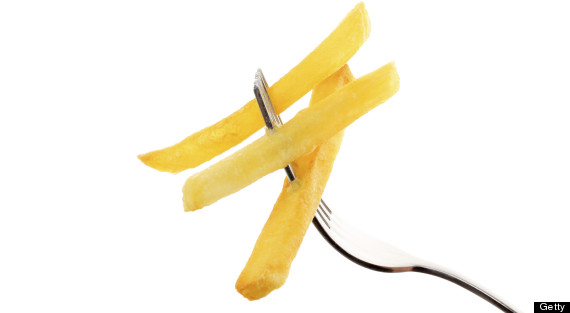
In Chile, touching food with your hands is considered ill-mannered. Yep, even fries! In Brazil, too, pizza and burgers are normally eaten with a fork and knife.
Don't ask for cheese.
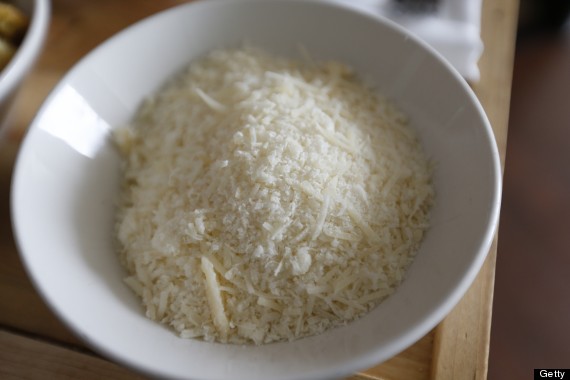
In Italy, never ask for cheese if it's not explicitly offered to you. It's considered a sin to put extra cheese on top of your pizza -- and it's even worse to put it on seafood.
Don't ask for salt and pepper.
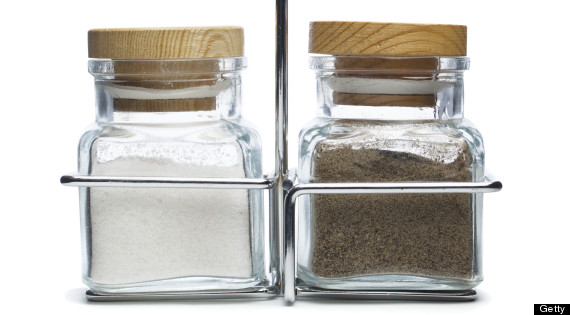
In Portugal, if salt and pepper aren't already on the table, don't ask for them. It's considered an offense to the chef's seasoning skills.
Don't put food in your mouth with a fork.
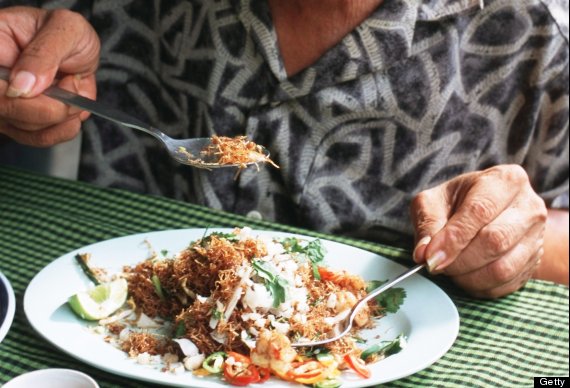
In Thailand, forks are used to push food into a spoon. Also, it's unusual to use chopsticks -- they're considered tacky.
Be sure to belch and make a mess.
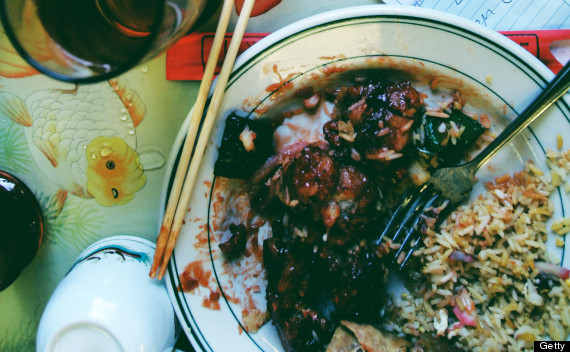
In China, belches are considered an indication of your satisfaction and a compliment to the chef on a job well done. Making a mess around the table serves a similar purpose, and leaving a bit of food leftover shows your host that he or she has provided you with more than enough food.
Don't bring yellow flowers to dinner.

In Bulgaria, yellow flowers symbolize hatred. Not the message (we hope) you're trying to send.
Never rest your hands in your lap while dining.

In Russia, it is considered polite to rest your wrists on the edge of the table -- not on your lap. Also, keep your fork in your left hand and knife in your right.
Don't use an individual plate.
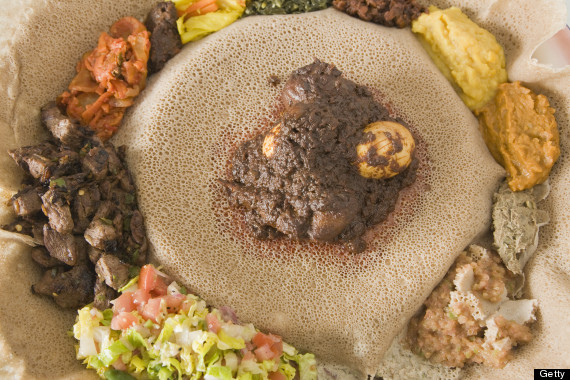
In Ethiopia, individual plates are considered wasteful. Food is always shared from a single plate without the use of cutlery -- just hands.
Got any more interesting food customs from your country of expertise? Share them with us in the comments below!
Correction: Belching is not necessarily an acceptable practice while dining in India, Germany, or Canada, as was previously stated.